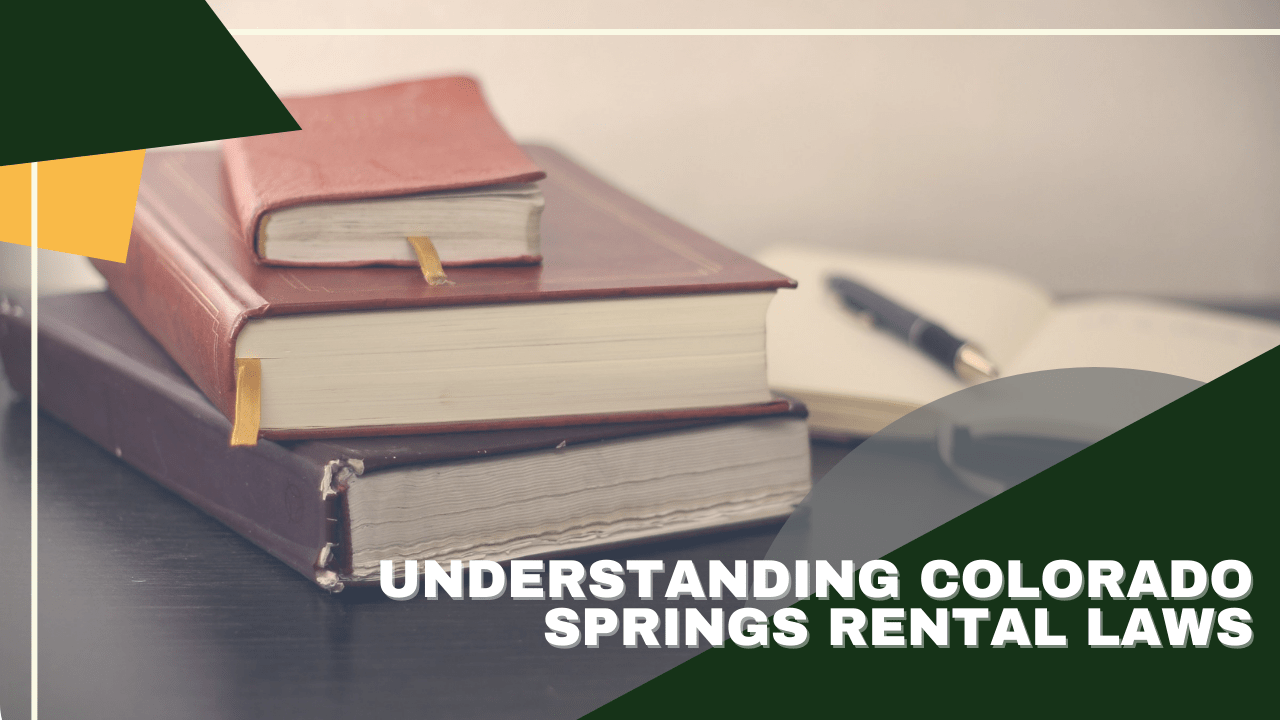
The rental laws in Colorado Springs follow the Colorado Landlord-Tenant Law. While the laws governing rental property protect the rights of both landlords and tenants, Colorado is generally considered a pretty landlord-friendly state.
It’s easy to make a mistake, however, and legal mistakes are often extremely expensive. Before you begin renting out your property, make sure you understand the rental laws that govern your investment and your relationship with residents.
Federal and State Fair Housing Laws
The most important laws that any rental property owner must follow are the fair housing laws. The federal Fair Housing Act prohibits any type of discrimination against tenants and applicants based on color, physical or mental disability, national origin, race, religion, sex, and familial status. While this might seem easy, you can unintentionally discriminate against people by choosing the wrong words in your marketing materials or holding one applicant to higher standards than another. Make sure everything in your marketing, screening, and leasing process is consistent and well-documented.
The Colorado fair housing laws are more extensive. In addition to protecting the seven classes of people set forth in the federal law, state laws won’t allow you to discriminate based on:
-
- Ancestry
- Creed
- Marital Status
- Sexual Orientation
Keep fair housing laws in mind when you’re managing your own rental property and if you need help, talk to a Colorado Springs property manager.
Colorado Security Deposit Laws
There’s no limit to what you charge in a security deposit. However, there are specific requirements that govern how it’s returned to your tenants at the end of the lease term.
First, you cannot deduct for normal wear and tear. The expected deterioration of a rental property due to regular use is your responsibility. You can deduct from the deposit for the following reasons:
-
- Unpaid rent
- Damage to the property
- Unpaid utility, repair, and cleaning bills
You also need to follow a strict timeline for returning the deposit. Generally, landlords have one month to return all or part of the deposit to tenants. If you’re withholding money, you’ll need to provide an itemize statement that reflects what it’s being held for.
You have the option of including a longer timeline in your lease agreement. However, even if you agree to return the deposit in more than 30 days, it cannot extend pass 60 days of the tenant moving out.
Colorado Eviction Laws
 We don’t know how long the federal moratorium on evictions will last. If a tenant is having trouble meeting their rent obligations because of a financial loss suffered during the pandemic, you may not be able to evict them for nonpayment of rent.
We don’t know how long the federal moratorium on evictions will last. If a tenant is having trouble meeting their rent obligations because of a financial loss suffered during the pandemic, you may not be able to evict them for nonpayment of rent.
However, under normal circumstances, Colorado law dictates how to lawfully and effectively remove a tenant from your property. You’ll have to serve a notice for the tenant to pay the late rent or leave the property, and then if you don’t get anywhere, you’ll have to go to court and file a forcible detainer suit. A forcible detainer suit requires the landlord to obtain a court order, requiring the tenant to vacate the property. Any other process in which the landlord attempts to evict the tenant is illegal. You cannot confront the tenant or change the locks.
These are the three most important laws to know when you’re renting out a Colorado Springs property. There’s a lot more to keep up with, so contact us at Muldoon Associates with any questions.
